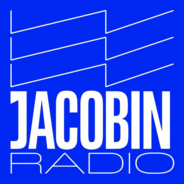Thomas Ferguson has investigated money in politics for decades, and he has found, over and over again, that money and election outcomes are directly linked.
He joins Suzi to talk about how Silicon Valley, finance, defense, and crypto have fused into what he calls “red tech.” Ferguson explains why the Democrats’ crisis isn’t about messaging — it’s about failing to deliver for working people while catering to donors. We dig into the investment theory of politics, the K-shaped recovery, crypto’s bipartisan capture, and the structural impasse at the heart of the Democratic coalition.
What does this new tech-capital bloc mean for labor, democracy, and the future of US politics?
Jacobin Radio with Suzi Weissman features conversations with leading thinkers and activists, with a focus on labor, the economy, and protest movements.

Politik
Jacobin Radio Folgen
News, politics, history and more from Jacobin. Featuring The Dig, Long Reads, Confronting Capitalism, Behind the News, Jacobin Radio with Suzi Weissman, and occasional specials.
Folgen von Jacobin Radio
1778 Folgen
-
Folge vom 30.09.2025Jacobin Radio: Tech Capital Is Taking Over Politics w/ Thomas Ferguson
-
Folge vom 29.09.2025Behind the News: Recognizing Palestine w/ Mouin RabbaniMouin Rabbani explains what is behind all these fresh diplomatic recognitions of Palestine and speculates on the future of Gaza. Ernesto Semán, author of a recent piece for the New York Review of Books, looks at the Argentine situation and the US bailout of the libertarian Javier Milei. Read Mouin’s article “The Meaning of Western Recognition of Palestine” here: https://jacobin.com/2025/09/recognition-palestine-israel-genocide-zionism Behind the News, hosted by Doug Henwood, covers the worlds of economics and politics and their complex interactions, from the local to the global.
-
Folge vom 24.09.2025Confronting Capitalism: The Origins of CapitalismIt’s well understood that capitalist economies are a recent development in human history. But there is persistent disagreement on the Left over exactly how and where the transition to capitalism occurred, as well as what role colonial plunder played in enriching the West. On this episode of Confronting Capitalism, Vivek Chibber explains the origins of capitalism, what primitive accumulation means, and how colonialism actually affected European development. The latest issue of Catalyst is out and you can subscribe for just $20 using the code, CONFRONTINGCAPITALISM: https://catalyst-journal.com/subscribe/?code=CONFRONTINGCAPITALISM Have a question for us? Write to us by email: confronting.capitalism@jacobin.com Confronting Capitalism with Vivek Chibber is produced by Catalyst: A Journal of Theory and Strategy, and published by Jacobin. Music by Zonkey.
-
Folge vom 23.09.2025Jacobin Radio: Trump’s War on Dissent w/ Pema LevyThe Roberts Court gave Trump sweeping immunity — and he’s using it to intimidate critics, greenlight ICE’s racial profiling raids, extort universities, law firms, corporations, and foreign governments, and crack down on political speech. Pema Levy of Mother Jones joins Suzi to unpack the landmark decision in Trump v. United States, a ruling that didn’t just grant Trump protection for official acts but armed him with the ability to wield the Justice Department as a personal weapon against political rivals. It’s as if the DOJ were Trump’s private legal office. Levy traces how legal and political practices are converging in an authoritarianism that threatens us all. Jacobin Radio with Suzi Weissman features conversations with leading thinkers and activists, with a focus on labor, the economy, and protest movements.
